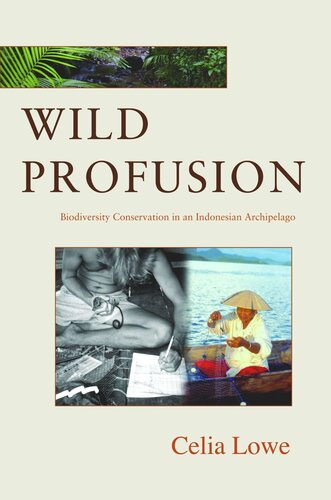

Most ebook files are in PDF format, so you can easily read them using various software such as Foxit Reader or directly on the Google Chrome browser.
Some ebook files are released by publishers in other formats such as .awz, .mobi, .epub, .fb2, etc. You may need to install specific software to read these formats on mobile/PC, such as Calibre.
Please read the tutorial at this link: https://ebookbell.com/faq
We offer FREE conversion to the popular formats you request; however, this may take some time. Therefore, right after payment, please email us, and we will try to provide the service as quickly as possible.
For some exceptional file formats or broken links (if any), please refrain from opening any disputes. Instead, email us first, and we will try to assist within a maximum of 6 hours.
EbookBell Team

4.4
92 reviewsWild Profusion tells the fascinating story of biodiversity conservation in Indonesia in the decade culminating in the great fires of 1997-98--a time when the country's environment became a point of concern for social and environmental activists, scientists, and the many fishermen and farmers nationwide who suffered from degraded environments and faced accusations that they were destroying nature. Celia Lowe argues that biodiversity, in 1990s Indonesia, implied a particular convergence of nature, nation, science, and identity that made Indonesians' mapping of the concept distinct within transnational practices of nature conservation at the time.
Lowe recounts the efforts of Indonesian biologists to document the species of the Togean Islands, to "develop" Togean people, and to turn this archipelago off the coast of Sulawesi into a national park. Indonesian scientists aspired to a conservation biology that was both internationally recognizable and politically effective in the Indonesian context. Simultaneously, Lowe describes the experiences of Togean Sama people who had their own understandings of nature and nation. To place Sama and scientist into the same conceptual frame, Lowe studies Sama ideas in the context of transnational thought rather than local knowledge.
In tracking the practice of conservation biology in a postcolonial setting, Wild Profusion explores what in nature can count as important and for whom.